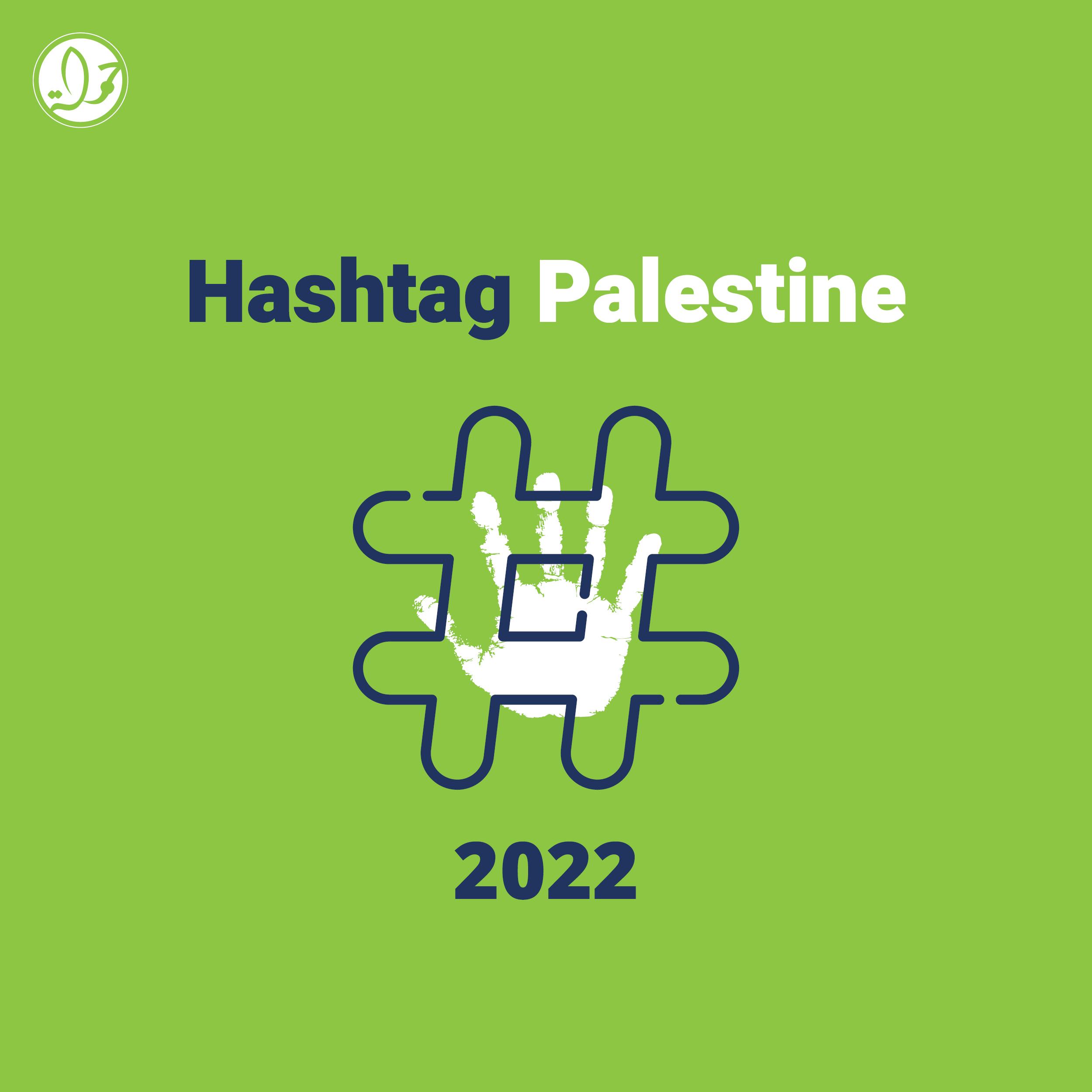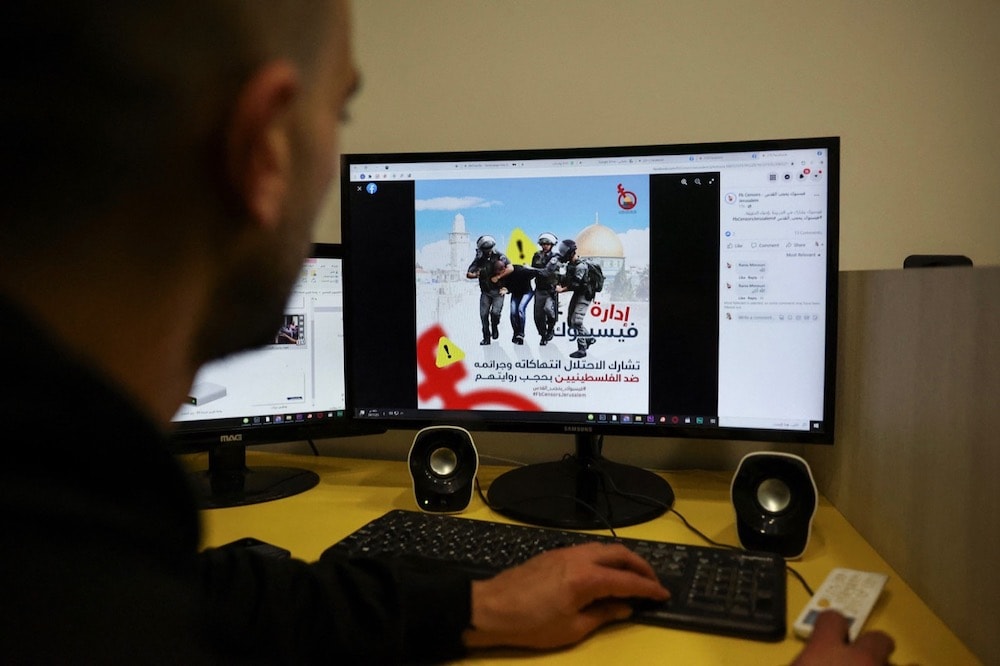A new report examines the state of Palestinian digital freedoms, and the most prominent violations last year.
This statement was originally published on 7amheh.org on 2 February 2023.
Hashtag Palestine 2022 diagnoses the state of digital freedoms, and outlines the most prominent patterns of digital rights violations and their trends during 2022.

7amleh – The Arab Center for the Advancement of Social Media issued its eighth annual report, “Hashtag Palestine”, in which it sheds light on the violations of Palestinian digital rights that Palestinians and their supporters are subjected to in the digital space by the various governments and big technology companies. The report diagnoses the state of digital freedoms, and outlines the most prominent patterns of digital rights violations and their trends during 2022. 7amleh collected and documented information on violations during the year within the Observatory for Documentation of Palestinian Digital Rights Violations (7or) and monitored local, regional and international media materials, in addition to cooperating with partners in analyzing and monitoring digital violations.
The report is a clear reflection of the political, social and economic events that Palestinians experienced throughout the year, which had an impact on the digital space and on the state of Palestinian digital rights and freedoms. 7amleh documented 1,119 digital rights violations committed by social media companies, various authorities, and other parties. 7amleh, a trusted partner for social media companies, was able to recover around 30% of the deleted content from various platforms, which was reported to (7or). The report shows that the Meta company is still the company posing most restrictions in relation to other social media giants, in terms of the extent of its moderation of the Palestinian digital space.
The report sheds light on the most prominent violations related to digital rights at the level of the three authorities (Israeli government, Palestinian Authority and the de facto authority in the Gaza Strip) on the one hand, and the technology companies on the other, especially with regard to the right to freedom of opinion and expression, the right to privacy, and the right to assembly and organization, among other rights. The Israeli authorities are working to pass the “Facebook Law” bill in the Israeli Knesset, which constitutes an additional threat to the threats facing Palestinian digital rights in the digital space. In this context, the Israeli authorities have arrested 410 Palestinians, over the past year, for their social media content. As for the Palestinian authorities, the report indicates that the Palestinian Authority in the West Bank and the de facto authority in the Gaza Strip continue to carry out arbitrary detentions and repeated summons of activists and journalists, against the backdrop of their digital activity and expression of their political opinions through communication platforms. The center has documented 7 cases of arbitrary detention for posting on social media.
As regards social media companies, the report refers to the results of the due diligence report published by the Business for Social Responsibility network (known as BSR, on the effects of the content management policies of Meta during the May 2021 escalations, which indicated excessive enforcement of content management policies on Palestinian content published in Arabic – compared to the lack of enforcement of content management policies on Israeli content published in Hebrew, which confirmed the long-standing complaints of human rights organizations regarding Meta’s bias against the Palestinians.
On the other hand, the report points to the continued violation by the Israeli authorities of the Palestinians’ right to privacy and the protection of personal data without any checks or deterrents. Moreover, the report reveals the increasing spread of surveillance and espionage techniques around the world, as reports indicate the expansion of the use of the Israeli Pegasus software to suppress opposition activists and the press in different countries around the world. The report indicated the absence of a law regulating the right to privacy and the protection of personal data of Palestinians in the Occupied Palestinian Territory, although 69% of Palestinians supported the necessity of such a law.
In addition to the above, the report discusses updates related to the issue of digital economic discrimination against Palestinians, as well as what is related to hate speech, discrimination and digital violence via the Internet. The report indicates that misleading content continues to spread widely, especially with the occurrence of any political and social developments and events, and this is noticeable on various social media platforms.



